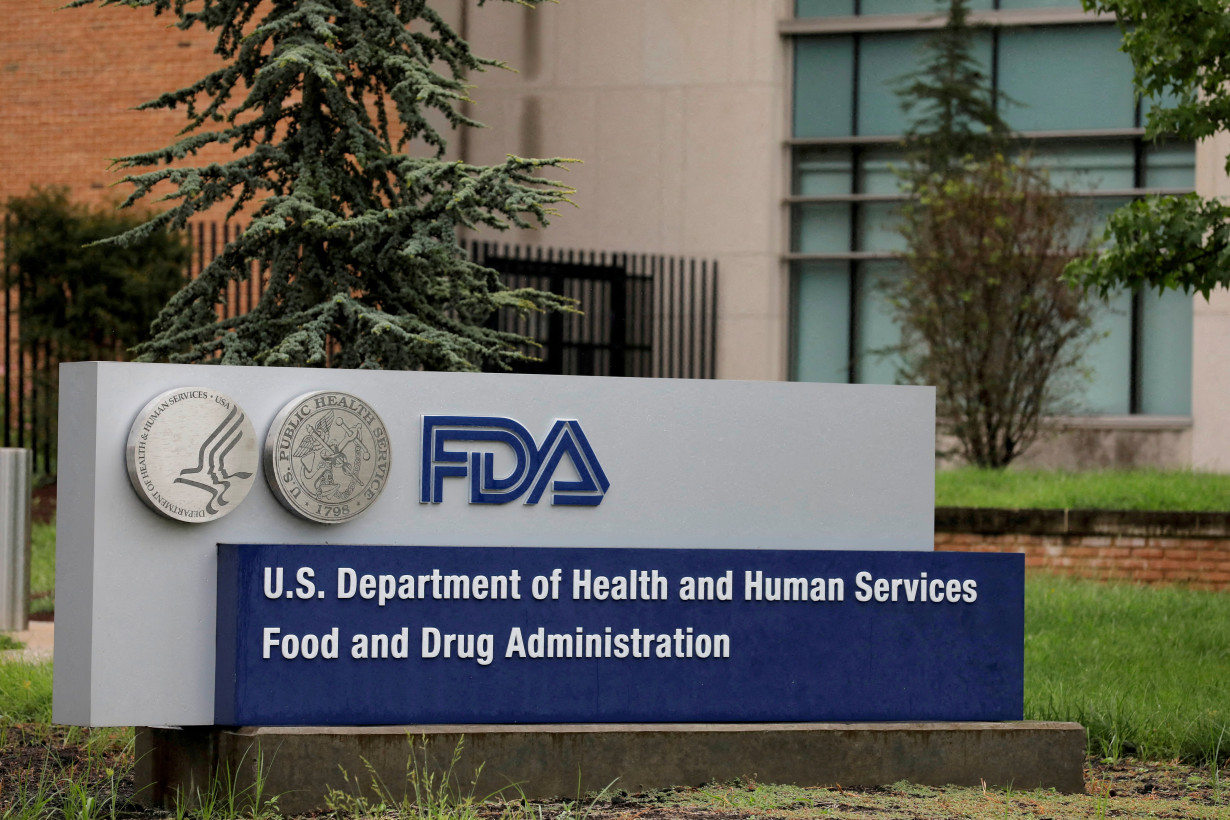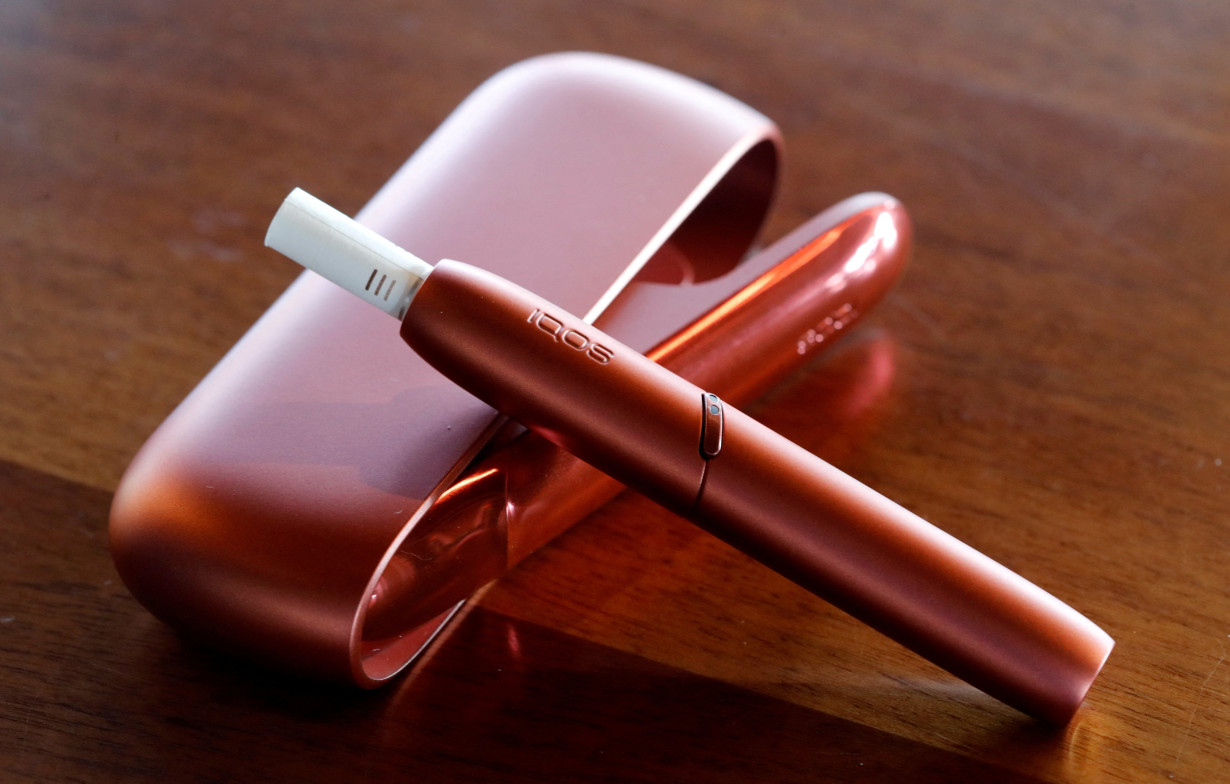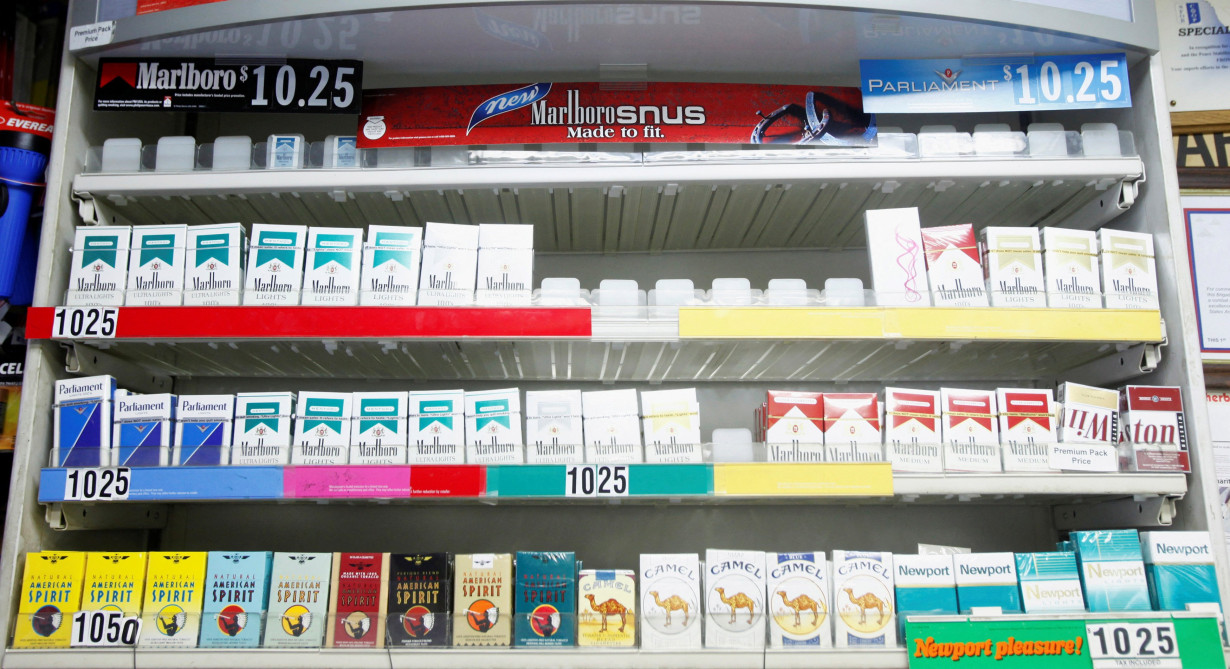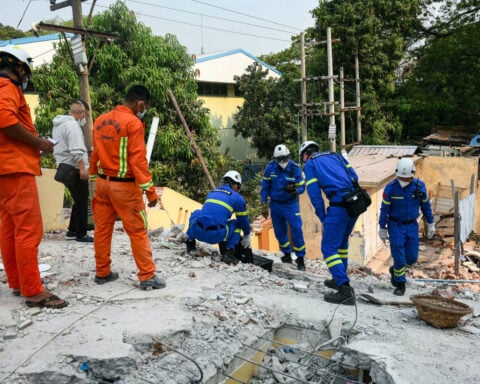By Patrick Wingrove
(Reuters) -Some U.S. health regulators who review medical devices and tobacco products for safety and efficacy are struggling to meet deadlines mandated by Congress due to Trump administration layoffs, three scientists working on the projects told Reuters.
On Thursday, the government said it will cut jobs across health agencies, including 3,500 at the U.S. Food and Drug Administration, a follow-on to earlier layoffs.

Two of the scientists who work at the FDA said they had been assigned around double the number of new product applications for review since their colleagues were fired in February. They requested anonymity for fear of professional repercussions.
They said they were instructed to shelve other work, including oversight of other reviewers and providing early feedback on planned product applications before they are submitted for approval review.
One scientist at the FDA's Center for Tobacco Products said the center had delayed starting new applications while staff worked on existing submissions, some with reviews that must be completed within 180 days under U.S. law. Several tobacco-related research projects have also been canceled, he said.
"We have 180 days to complete those (existing) reviews, and we're not going to come anywhere close to that. It's just not going to happen," the scientist said.

The agency's tobacco center is currently reviewing high-profile projects including one from Philip Morris International that seeks approval for a new iteration of its heated tobacco device IQOS.
A Philip Morris spokesperson said the average wait time for a tobacco-product application is closer to 700 days than 180 days.
The FDA did not respond to a request for comment.
The U.S. Department of Government Efficiency - led by billionaire Elon Musk - fired around 1,000 probationary FDA employees last month, mostly from the agency’s centers for tobacco, food and medical devices, before bringing some back.
Reuters could not confirm the final number of staff fired. The FDA had more than 20,000 workers earlier this year.
Ameet Sarpatwari, a professor at Harvard Medical School, said the FDA's loss of personnel and institutional experience could lead the agency to spend longer on reviews, resulting in products coming to market later, or spend less time on individual applications, increasing the risk of missing any red flags.
CANCELED MEETINGS
Eva Temkin, a lawyer at Arnold & Porter who advises clients on drug and medical device applications, said even if product reviewers are not terminated in the next round of layoffs, other FDA staff like policy experts and legal counsel are critical to product review work.
"If this plan goes forward, I do expect to see missed user fee goals and commitments," she said.
She said the FDA had already canceled some meetings with companies or reverted to providing written responses only.
A lawyer specializing in FDA regulation, who spoke on condition of anonymity, said her clients at large medical device companies were deeply concerned that the FDA would start missing deadlines following February's layoffs. Medical device industry group AdvaMed said the organization was hearing similar concerns, a spokesperson said.
The FDA last year approved more than 3,000 medical devices, around three-dozen of which were for original, high-risk devices like Medtronic's Affera system to treat atrial fibrillation, and more than 250 applications for tobacco products, according to agency databases.
The administration had been offering $25,000 buyouts to FDA employees, excluding reviewers, investigators and security personnel, and early retirement ahead of that proposal, according to agency emails viewed by Reuters.
A second scientist in the tobacco division said he had been given more complicated applications to review, which require more in-depth study, after over a dozen people were fired in his office, while simpler submissions assigned to him had been put on pause.
He said he had also been given a regulatory memorandum to work on by himself that would normally be compiled by as many as six scientists.
Some of the probationary workers laid off from the FDA’s tobacco center had been recruited last year for their understanding of emerging technologies, such as age verification software for electronic cigarettes, according to the first scientist.
"We needed a greater variety of expertise, and we lost that. And so that has left us scrambling quite a bit," he said.
(Reporting by Patrick Wingrove; Editing by Caroline Humer, Michele Gershberg and Bill Berkrot)

 Trump has begun another trade war. Here's a timeline of how we got here
Trump has begun another trade war. Here's a timeline of how we got here
 Canada's leader laments lost friendship with US in town that sheltered stranded Americans after 9/11
Canada's leader laments lost friendship with US in town that sheltered stranded Americans after 9/11
 Chinese EV giant BYD's fourth-quarter profit leaps 73%
Chinese EV giant BYD's fourth-quarter profit leaps 73%
 You're an American in another land? Prepare to talk about the why and how of Trump 2.0
You're an American in another land? Prepare to talk about the why and how of Trump 2.0
 Chalk talk: Star power, top teams and No. 5 seeds headline the women's March Madness Sweet 16
Chalk talk: Star power, top teams and No. 5 seeds headline the women's March Madness Sweet 16
 Purdue returns to Sweet 16 with 76-62 win over McNeese in March Madness
Purdue returns to Sweet 16 with 76-62 win over McNeese in March Madness








